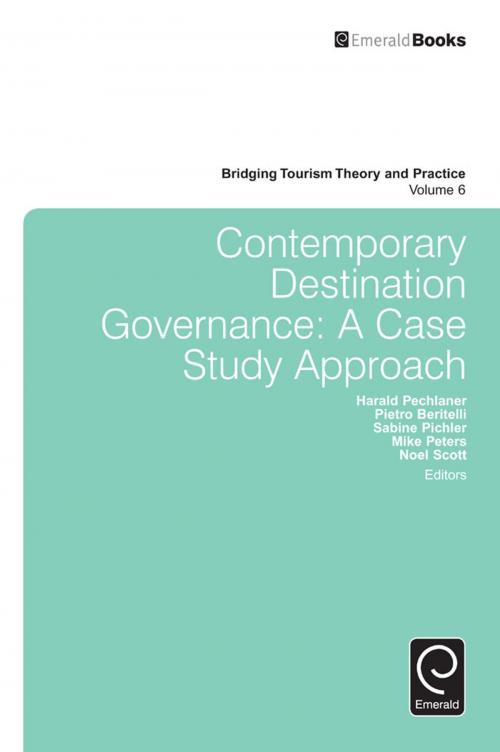Contemporary Destination Governance
A Case Study Approach
Business & Finance, Industries & Professions, Hospitality, Tourism & Travel, Business Reference| Author: | ISBN: | 9781783501137 | |
| Publisher: | Emerald Group Publishing Limited | Publication: | April 9, 2015 |
| Imprint: | Emerald Group Publishing Limited | Language: | English |
| Author: | |
| ISBN: | 9781783501137 |
| Publisher: | Emerald Group Publishing Limited |
| Publication: | April 9, 2015 |
| Imprint: | Emerald Group Publishing Limited |
| Language: | English |
"Governance is about managing networks". This quote from political scientist Rod A.W. Rhodes pioneered a whole series of governance studies in different disciplines. Accordingly, destination governance describes the collective management of tourism destinations. Promoting collective action in tourism destinations means dealing with a myriad of different actors and applying various instruments. Probably the most basic requirement is to take into account the peculiarities of every single destination. Therefore, this book approaches the issue of contemporary destination governance from a case study point of view focusing on 16 destinations. In contrast to other publications in the field of destination governance, the book concentrates on the discussion of cases and the peculiarities of destinations which influence the destination governance. It demonstrates how different theories from the fields of organizational studies, strategic management, tourism research and sociology can enlighten our understanding of particular real-world situations. Last but not least the bottom-up approach supports practitioners and students by making otherwise complex theories accessible to a broader audience.
"Governance is about managing networks". This quote from political scientist Rod A.W. Rhodes pioneered a whole series of governance studies in different disciplines. Accordingly, destination governance describes the collective management of tourism destinations. Promoting collective action in tourism destinations means dealing with a myriad of different actors and applying various instruments. Probably the most basic requirement is to take into account the peculiarities of every single destination. Therefore, this book approaches the issue of contemporary destination governance from a case study point of view focusing on 16 destinations. In contrast to other publications in the field of destination governance, the book concentrates on the discussion of cases and the peculiarities of destinations which influence the destination governance. It demonstrates how different theories from the fields of organizational studies, strategic management, tourism research and sociology can enlighten our understanding of particular real-world situations. Last but not least the bottom-up approach supports practitioners and students by making otherwise complex theories accessible to a broader audience.















